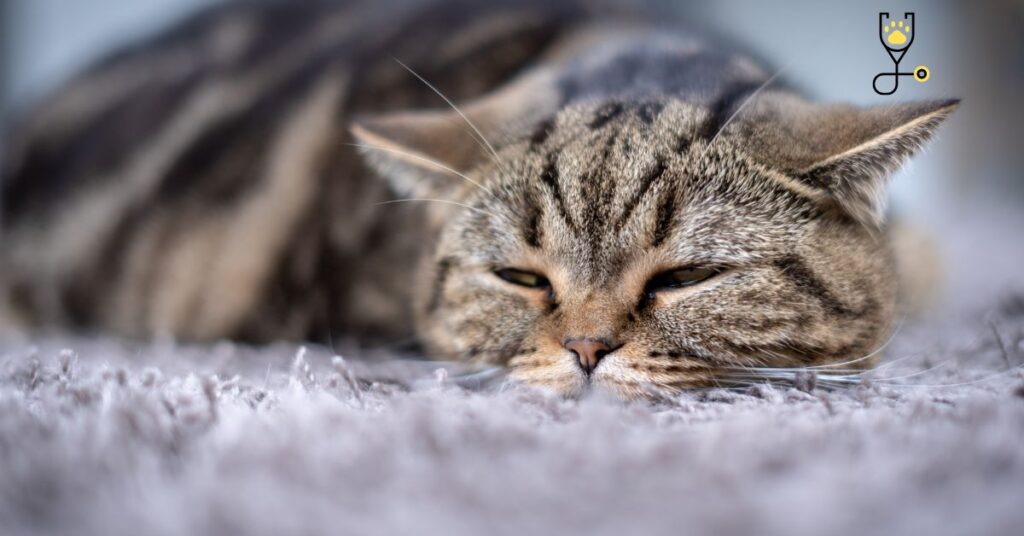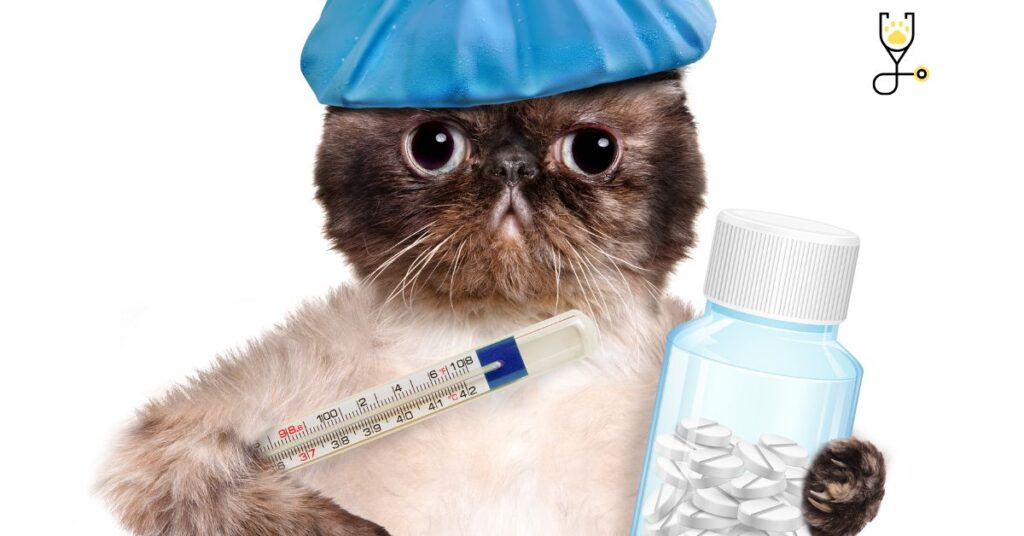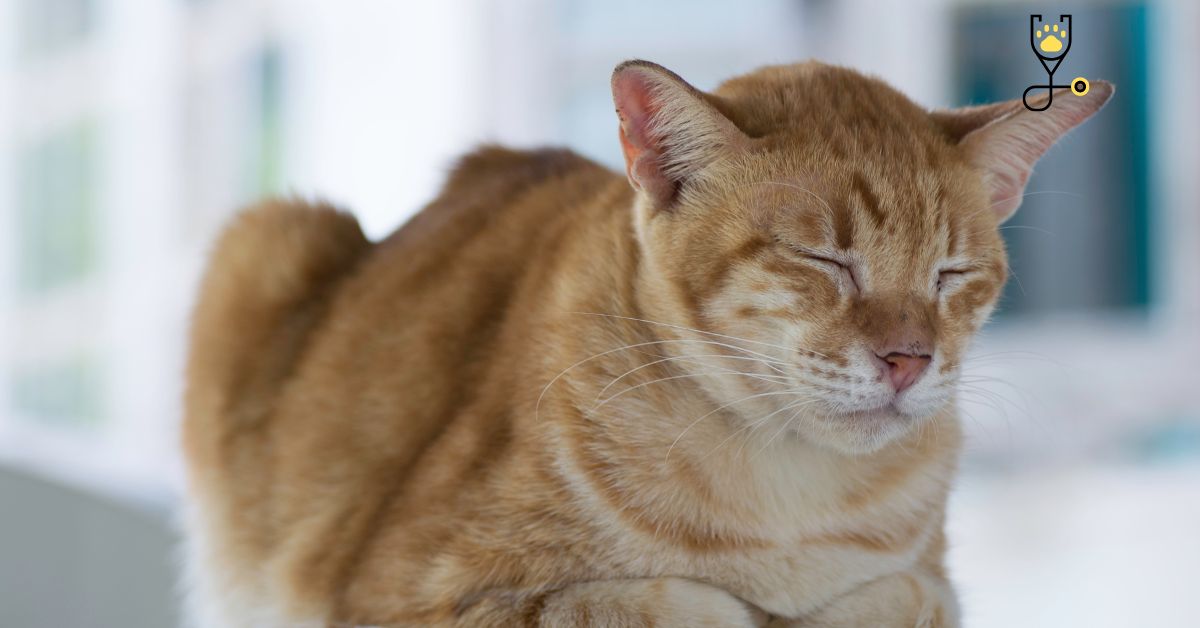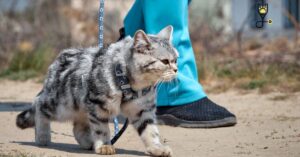coccidia in kittens is a parasitic infection that can be deadly if left untreated. While all kittens are at risk for contracting coccidia, those who are not properly vaccinated or who live in unsanitary conditions are most vulnerable. Thankfully, coccidiosis is easy to diagnose and treat, and there are several precautionary measures you can take to protect your kitten from this dangerous parasite. Keep reading to learn more about coccidia in kittens, including its causes, symptoms, and treatment options. You will also find out how to prevent the spread of this infection among your furry friends.
What is coccidia in kittens?
Coccidia is a type of parasitic protozoa that lives in the intestines of infected animals. While there are many different species of coccidia, only a few affect cats. The most common type of coccidia found in kittens is called Isospora felis. This protozoan invades the cells lining the intestine, causing them to rupture and release their contents into the tissues. The resulting inflammation and damage to the intestines can lead to severe diarrhea, dehydration, weight loss, and even death in young kittens.
How do kittens get coccidia?
Kittens can contract coccidia through contact with contaminated feces or by eating infected prey. Mother cats can also pass the parasite to their kittens through their milk. Once coccidia invades the intestine, it will begin to multiply and spread to other cells. The infection will then continue to grow and cause damage to the intestines.
What are the symptoms of coccidia in kittens?
There are 10 symptoms of coccidia in kittens which explain in details below:

1. Diarrhea: The most common symptom of coccidia in kittens is diarrhea. This may be watery and bloody, and it may contain mucus or pus. The diarrhea will likely be severe and may contain blood or mucus.
2. Fever: Kittens with coccidia may also have a fever
3. Loss of appetite: Kittens with coccidia may lose their appetite and stop eating.
4. Weight loss: Kittens with coccidia may also lose weight.
5. Dehydration: Kittens with coccidia may become dehydrated due to the diarrhea and vomiting.
6. Lethargy: Kittens with coccidia may become lethargic and tired.
7. Abdominal pain: Kittens with coccidia may also experience abdominal pain.
8. Bloody stools: Kittens with coccidia may have bloody stools.
9. Vomiting: Some kittens with coccidia may vomit.
10.Death: In severe cases, kittens with coccidia may die from the infection.
Causes of coccidia in kittens
There are several different things that can cause a kitten to develop coccidia, including:
1. Poor sanitation: Kittens who live in unsanitary conditions are more likely to contract coccidia.

2. Lack of vaccination: Kittens who have not been properly vaccinated are also at risk for contracting coccidia.
3. Stress: Kittens who are stressed are more likely to develop coccidia.
4. Weakened immune system: Kittens with a weakened immune system are also more susceptible to the infection.
5. Ingesting contaminated feces: One of the most common ways kittens contract coccidia is by ingesting contaminated feces. This can happen if they lick their fur after being in contact with contaminated surfaces.
How is coccidia diagnosed in kittens?
Coccidiosis is typically diagnosed through a fecal exam. Your veterinarian will collect a sample of your kitten’s stool and examine it under a microscope for the presence of coccidia parasites. In some cases, your veterinarian may also recommend a blood test to check for the presence of antibodies to coccidia.
Treatment of coccidia in kittens

There are two main treatments for coccidia in kittens:
antibiotics and supportive care.
1. Antibiotics are the most effective way to kill the coccidia parasites and clear the infection. The most common antibiotic used to treat coccidia is sulfa drugs, such as sulfadimethoxine or sulfaquaniline. These drugs are available in oral, injectable, and topical formulations. Your veterinarian will choose the best drug and route of administration for your kitten based on the severity of the infection.
2.In addition to antibiotics, kittens with coccidia will also need supportive care to help them recover from the infection. This may include fluids to prevent dehydration, supplemental feedings if they are not eating, and close monitoring by a veterinarian. Kittens with coccidia are also at risk for developing secondary bacterial infections, so they may also need antibiotics to treat these infections.
How can I prevent my kitten from getting coccidia?
There are a few things you can do to help prevent your kitten from getting coccidia:
1.Keep your kitten’s environment clean: Be sure to clean your kitten’s litter box regularly and keep their sleeping area clean.
2.Do not allow your kitten to roam freely outside: Keep your kitten indoors to prevent them from coming into contact with contaminated soil or feces.
3.Do not feed your kitten raw meat: Raw meat may contain coccidia parasites, so it is best to avoid feeding it to your kitten.
4.Have your veterinarian check your kitten for coccidia: Your veterinarian can check your kitten for coccidia during their regular wellness visits.
5.Consider having your kitten vaccinated: There is a vaccine available for coccidia, and your veterinarian can discuss whether it is right for your kitten.
Coccidiosis is a serious infection that can be deadly in kittens. If you think your kitten may have coccidia, be sure to take them to the veterinarian right away. With prompt treatment, most kittens make a full recovery.
What is the prognosis of coccidia in kittens?
The prognosis for kittens with coccidia is generally good if the infection is caught early and treated promptly. Kittens who are not treated or who have a delayed treatment may develop severe dehydration, malnutrition, and secondary infections that can be fatal. If you think your kitten may have coccidia, be sure to take them to the veterinarian right away.
Conclusion
Coccidiosis is a serious infection that can be deadly in kittens. If you think your kitten may have coccidia, be sure to take them to the veterinarian right away. With prompt treatment, most kittens make a full recovery.
Frequently Asked Questions
1.How long does it take for a kitten to recover from coccidia?
With prompt treatment, most kittens make a full recovery within 2-3 weeks. Kittens who are not treated or who have a delayed treatment may develop severe dehydration, malnutrition, and secondary infections that can be fatal.
2.Can people get coccidia from kittens?
No, coccidia is not contagious to people. It is important to note that although coccidia is not contagious to people, it is possible for people to spread the infection to other animals. Be sure to wash your hands thoroughly after handling any animal with coccidia.
3.How do I clean my house if my kitten has coccidia?
If your kitten has coccidia, it is important to clean their living areas thoroughly. Remove and dispose of any feces immediately, and use a bleach solution to clean surfaces that may have come into contact with feces. Be sure to wash your hands thoroughly after cleaning. It is also important to prevent other animals in the household from coming into contact with contaminated feces. Keep your kitten separate from other animals and clean their litter box frequently. Consult with your veterinarian for additional tips on cleaning and prevention in multiple animal households.
4.Can adult cats get coccidia?
Yes, adult cats can also get coccidia, although it is more common in kittens. Adult cats may have a lower risk for severe symptoms and complications, but it is still important to have them treated promptly. Keep in mind that adult cats can also spread the infection to other animals, so it is important to prevent contamination and practice good hygiene. Consult with your veterinarian for tips on prevention and treatment for adult cats.
5. Can coccidia be prevented in kittens?
There are steps that can be taken to reduce the risk of coccidia in kittens, such as keeping their living area clean and preventing them from roaming outside where they may come into contact with contaminated soil or feces. There is also a vaccine available for coccidia, and your veterinarian can discuss whether it is right for your kitten. It is also important to prevent other animals in the household from coming into contact with contaminated feces, and to clean any surfaces that may have come into contact with feces using a bleach solution. Consult with your veterinarian for additional tips on preventions.







